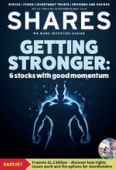Archived article
Please note that tax, investment, pension and ISA rules can change and the information and any views contained in this article may now be inaccurate.
Cheaper and pricier trusts: private equity, biotech and China

A key point of difference for investment trusts compared with other types of fund is they often trade at a premium or discount to the valuation of the assets they hold.
A particularly interesting situation to keep tabs on is where relationship between the share price and the net asset value of a trust is significantly out of kilter with its longer-term average.
SCREENING THE UNIVERSE
Using data from broker Winterflood we have identified a selection of trusts trading at a bigger discount to NAV than the 12-month average. This can create a useful list of trusts to consider buying in the hope that the discount soon narrows.
We have also looked at trusts trading on a smaller premium to NAV versus the 12-month average.
And to provide balance, we have looked at those trading on smaller discounts or larger premiums than normal as this can provide a list of trusts that could be considered expensive, or at least relative to where they have traded in the past year.
The NAV used in the tables in this article is calculated with any debt held by the trusts at book value, which is how much it will cost to repay the lender when the loan is due, rather than fair value, which is how much the debt is worth now. All the average NAV figures are for the last 12 months.
We have excluded REITs (real estate investment trusts) and more complex vehicles which invest in areas like structured finance.


PRIVATE EQUITY COMES TO THE FORE
Many private equity trusts have become more expensive, such as trading on higher premiums, or they are less of a bargain as their discount to NAV has narrowed versus the 12-month average.
Traditionally most private equity trusts have traded substantially below their NAVs. Key reasons for this include a lack of transparency, with no daily market value for the unquoted assets they hold. In addition, their ability to buy or sell these assets is also reduced.
However, the private equity industry has come to the fore in the wake of the pandemic. Global private equity was sitting on $1.9 trillion worth of committed capital as of January 2021 according to data provider Prequin and private equity firms enjoyed the busiest six-month period for M&A on record in the first half of 2021 according to Refinitiv, spending $513 billion on mergers and acquisitions. This has encompassed several deals for UK-listed businesses.
A series of robust updates from private equity trusts have also contributed to them enjoying improved valuations.
Investors looking for stocks to buy in this space might want to look at Oakley Capital (OIC), despite its shares now trading at a lower discount than their 12-month average (15% versus 23.2% respectively). ‘At a time when discounts have narrowed in the listed private equity sector, we believe that Oakley offers value,’ says Numis.
‘The company has been off the radar of a number of investors given its historic corporate governance misdemeanours, however governance has now improved, including a commitment not to issue shares at a discount, as has disclosure.
‘We believe Oakley’s approach of partnering with serial entrepreneurs and being able to undertake complex transactions provides attractive origination and that the rating of the listed fund does not reflect Oakley’s reputation in private markets nor the prospects for the portfolio given the heavy focus on consumer digital, education and technology.’
CHINA-RELATED TRUSTS LOSE PREMIUM STATUS
Looking at the list of trusts trading at smaller than average premiums, it is not a shock to see several trusts with exposure to China.
Baillie Gifford China Growth (BCGC) and Pacific Horizon (PHI) have been badly affected by a souring of sentiment towards Chinese stocks, particularly those in the technology sector.
This follows a series of crackdowns by Beijing with a swathe of new rules introduced, seemingly centred on breaking up monopolies and regulating the use of data.
Both of these investment trusts have a 12-month average premium to NAV in the region of 8%, yet these premiums have now almost disappeared.
BIOTECHS NOT AS EXPENSIVE
Perhaps more surprising are the reduced premiums for biotech-focused trusts in an environment where the Covid-19 pandemic has highlighted the crucial role played by the sector.
According to the Winterflood data Syncona (SYNC) is now trading at a premium less than half of its 12-month average, at 11.1% versus 22.4% respectively.
The trust focuses on backing future leaders in the life sciences industry. It has a high conviction approach and tends to invest early and support portfolio constituents.
Like the Biotech Growth Trust (BIOG), Syncona has been affected by delays to the approval of new drugs amid Covid-related disruption. The shares have also been hit by a shift in the market’s preference away from more speculative, growth-orientated investments. The latter might also help explains why Allianz Technology (ATT) is trading at a smaller than average premium, despite a strong track record.
TECH TRUST TANKS
Fellow tech-focused trust Manchester & London (ML.) has struggled recently and now trades at a significantly wider discount (17.1%) than its 12-month average (7.4%).
Investec analysts Alan Brierley and Ben Newell flagged the risks associated with the trust in March in a damning piece of research. At the time it was trading at a single-digit discount.
Noting that Manchester & London’s managers were not shy in criticising rivals and that they even had a pop at the world’s most famous investor, Warren Buffett, the Investec analysts said: ‘For a company with a market cap of £238 million, the disclosure is awful.
‘Given there is no colour on the option/hedging/derivatives strategy, it is very difficult to establish the effective exposure and therefore understand risk.’
Important information:
These articles are provided by Shares magazine which is published by AJ Bell Media, a part of AJ Bell. Shares is not written by AJ Bell.
Shares is provided for your general information and use and is not a personal recommendation to invest. It is not intended to be relied upon by you in making or not making any investment decisions. The investments referred to in these articles will not be suitable for all investors. If in doubt please seek appropriate independent financial advice.
Investors acting on the information in these articles do so at their own risk and AJ Bell Media and its staff do not accept liability for losses suffered by investors as a result of their investment decisions.

 magazine
magazine








